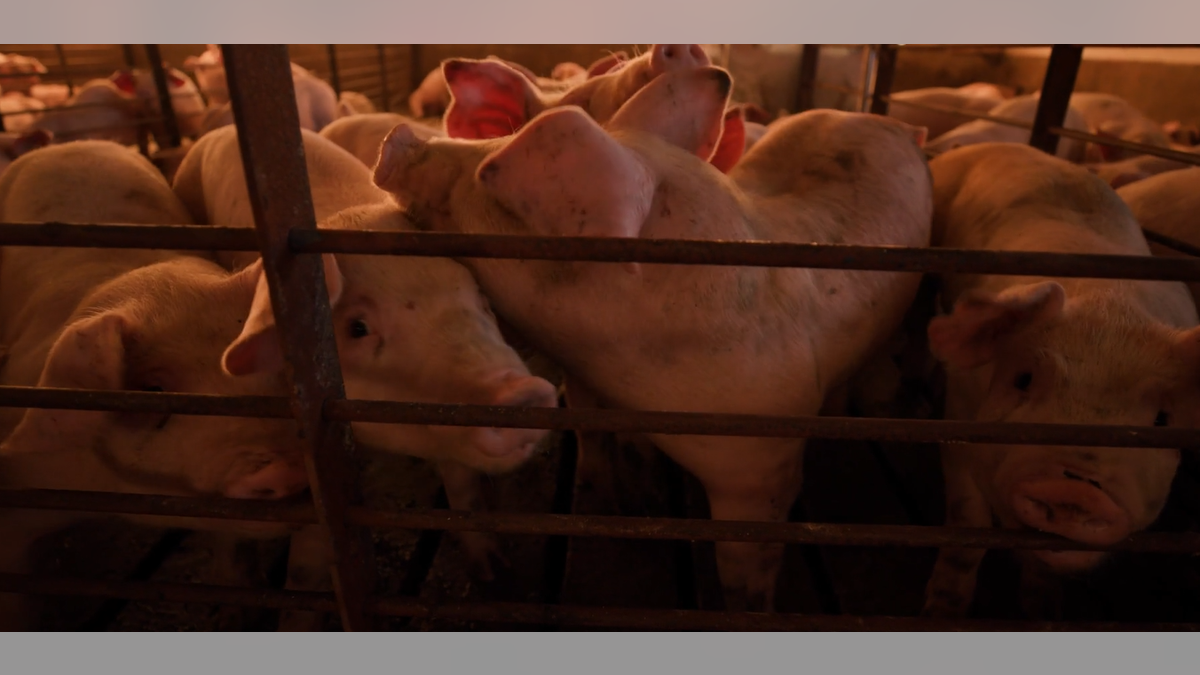Fox News Flash top headlines for January 26
Fox News Flash top headlines are here. Check out what's clicking on Foxnews.com.
Hollywood is once again barreling forward with a one-dimensional attack on an industry facing complex issues and misrepresenting its problems to demonize capitalism. A recent documentary, "The Smell of Money," supported by several Hollywood stars, such as Joaquin Phoenix and Rooney Mara, focuses on the legal battle between residents near Smithfield Farms and Smithfield Foods in North Carolina.
While it may be fair to criticize the Chinese-owned pork-producing multinational firm, the documentary's inflammatory rhetoric around environmental racism could be very damaging to the vast majority of hog farmers who operate family-owned farms across America just trying to earn a living and provide a crucial service: feeding humans.
Let's be clear: there are serious issues that hog farms need to address. I recently laid them out in great detail in a three-part series on hog farming. While opponents argue that the concentration of hog farming facilities in specific communities amounts to "environmental racism," it is essential to consider a more nuanced perspective that addresses the broader socioeconomic and regulatory dynamics at play.
The location of hog farms is not in any way a form of intentional discrimination. Unlike the practice of "redlining," where the government deliberately segregated housing by refusing to insure mortgages near predominantly black neighborhoods, historical data analyzed by the Pork Council shows us that hog farms were not purposely set up in Black communities.

An image from the documentary "The Smell of Money."
In fact, the data shows that "demographics of populations around hog farms in North Carolina are more than 2-to-1 white to African-American, no matter what distance from the farm is measured."
Demographic changes over the past 25 years may have contributed to some disparities, but there is little evidence supporting the implication that minorities were targeted when permits were issued. Instead, the challenges faced by these communities are more closely tied to geographic placement, economic considerations and regulatory decisions rather than explicit racial biases.
Attributing the issues solely to "environmental racism" oversimplifies the intricate factors influencing the placement and problems of hog farming. Low-income communities, often disproportionately affected by adverse hog farming effects, may lack the political influence and economic resources to address environmental hazards. This vulnerability stems from limited means to advocate or influence regulatory decisions, irrespective of racial composition.
Addressing environmental disparities associated with hog farming requires a holistic approach that considers the multifaceted nature of the problem. Focusing exclusively on "environmental racism" may hinder the development of comprehensive solutions, neglecting broader socioeconomic factors such as land-use policies, economic considerations and historical development patterns.
While communities near hog farms undoubtedly require relief, finding solutions is not as straightforward as altering hog waste management practices. Despite studies exploring alternative waste uses, lagoon systems remain the most cost-efficient disposal method.
CLICK HERE FOR MORE FOX NEWS OPINION
Blaming hog farmers for the issues is unjust, especially in the face of regulatory constraints like North Carolina's moratorium on new or expanding hog farm permits since 1997.
It would probably surprise Hollywood that the call for less regulation, not more, could help solve the problem. It could lead to more technological innovation and competition, encouraging hog farmers to explore and adopt alternative waste management practices that would benefit both the industry and surrounding communities.
In fact, the data shows that "demographics of populations around hog farms in North Carolina are more than 2-to-1 white to African-American, no matter what distance from the farm is measured."
Consider creating a regulatory sandbox for agriculture, such as what many states already have for sectors like finance and insurance. North Carolina could easily implement this change with guidance from its state Innovation Council.
CLICK HERE TO GET THE FOX NEWS APP
This expanded sandbox would temporarily waive specific regulations for agricultural technologies, enabling farmers and agribusinesses to explore innovations blocked by conventional regulatory processes.
Hollywood is right that the challenges faced by America's hog industry do demand attention, and concerns for communities near hog farms deserve serious consideration. However, branding the entire industry as "racist" oversimplifies the issues and detracts from meaningful solutions. A balanced approach is necessary, prioritizing health concerns without vilifying our country's farmers.
Kelly Lester is a Policy Analyst at the John Locke Foundation's Center for Food, Power, and Life.











































